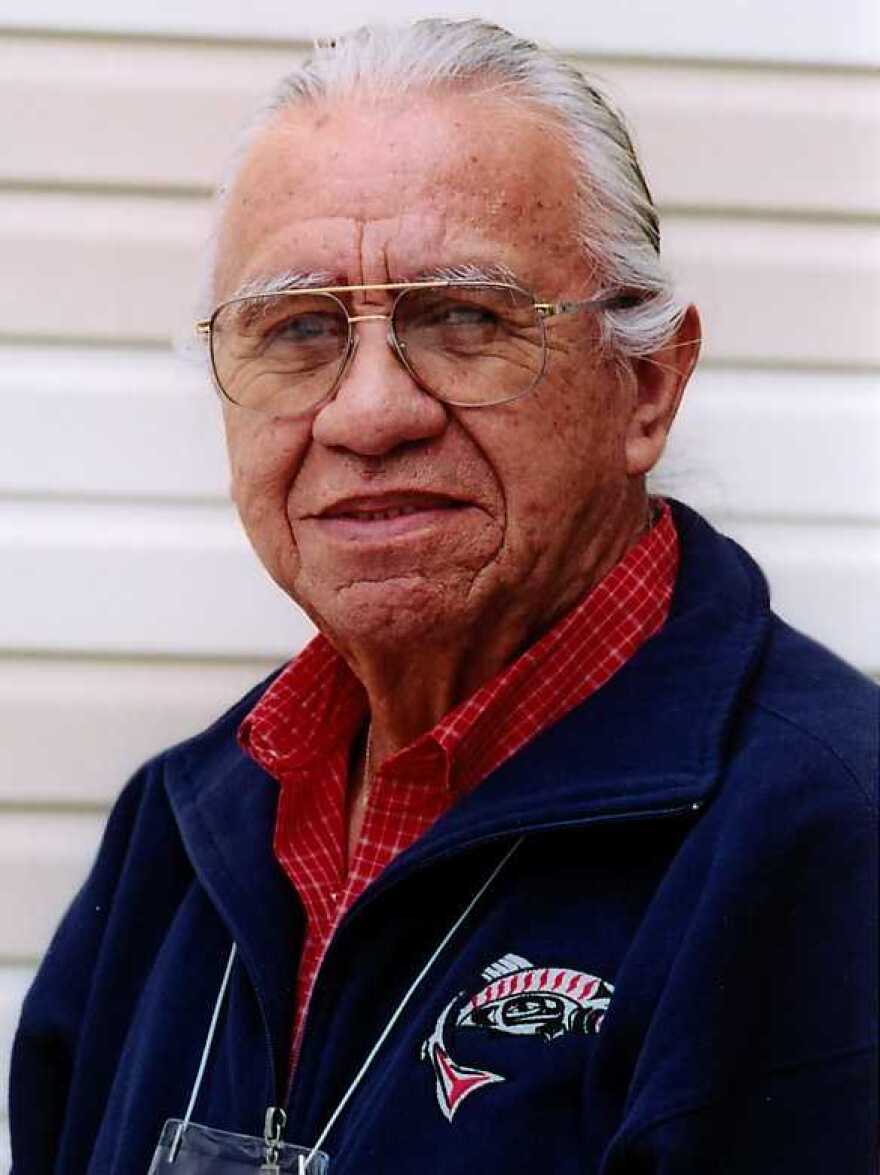A legendary champion of tribal treaty rights and Northwest salmon restoration died Monday. Billy Frank Jr. was 83 years old.
The Northwest Indian Fisheries Commission announced Frank's passing. The message did not give a cause of death.
Frank was the commission's longtime chairman. The Nisqually tribal fisherman came to public notice in the 1960s and early '70s during what is now known as the Northwest "Fish Wars." Frank was arrested more than 50 times during protests for tribal fishing rights.
Frank’s activism and that of others resulted in a landmark court decision in 1974 called the Boldt decision. A federal judge ruled that 20 Western Washington tribes are entitled to half of the annual fish harvest in their area.
Afterwards, Frank remained a relentless advocate for salmon and the environment. With his silver hair tied in a ponytail, he frequently testified before Congress and at the Legislature in Olympia and counted several governors as personal friends. He kept up his environmental advocacy to the end.

"All of us, we have got to do a better job than we have been doing," said Frank in 2012 at the book launch of a biography about himself. "Them treaties are the law of the land, they're a contract between the United States and our tribes. We are going to bring that to the front."
At that same event, biographer Trova Heffernan said of Frank, "He defines perseverance ... There's not a trace of bitterness anywhere. He carried no anger."
As word of Frank's passing spread, remembrances poured in from near and far. In a statement issued Monday, Gov. Jay Inslee recalled that, "Billy never wavered in his conviction and passion. He stressed to me the spiritual and cultural relationship that indigenous people have with salmon."
“His work is the foundation of an enduring legacy that will never be forgotten in Washington state," Inslee said.
"Indian Country has suffered a monumental loss in the passing of Billy Frank, Jr.," wrote Columbia River Intertribal Fish Commission chairman Paul Lumley from Portland. "His impacts knew no boundaries and were often felt from the streams of the Pacific Northwest to the halls of Washington DC. Billy was a living icon."
Frank is survived by three children from two marriages — Tobin "Sugar," Tanu and Willie — and a large extended family. Frank outlived both of his wives.
---
The 1971 documentary "As Long As the Rivers Run" features vintage footage of Billy Frank Jr., his mother, father and other Fish Wars activists:




